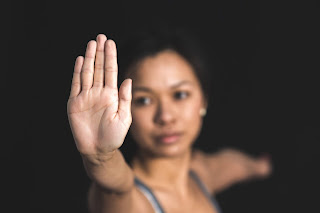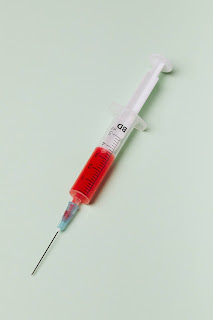How can touch be used to combat illness and disability?
How can touch be used to combat illness and disability?
Human touch is an essential part of our health and wellbeing, throughout our lives from the time we are born to the time we die it plays an essential part in helping us to feel nurtured and cared for. Babies need to be cuddled and held to thrive, children need contact to feel safe and understood, teenagers need to feel connection to feel accepted and heard, adults need to feel wanted and recognised and seniors need touch to combat loneliness and pain.
The power of touch is so much more then this, which thankfully has been recognised due to numerous ongoing findings and medical reports which have all proved that patients who received therapeutic touch recovered much faster than those who did not or only received the placebo effect.
The Egyptians were the first to introduce the benefits of deep tissue massage and the Chinese the benefits of therapeutic touch into medicine. As a result of the power of touch becoming so beneficial and widely recognised, various hospitals have started to incorporate therapeutic touch to complement existing medical care. In addition to this as a nation we have become more aware of our emotional, physical and spiritual health in the way we eat and the products we use to maintain internal balance and this includes exploring alternative and more natural methods of healing to replace the chemical treatments that were previously the only option. Therefore, treatments such as Reiki, massage, acupuncture and acupressure have become very popular due to the many benefits they can provide.
Our skin is the largest organ in our body and through positive healing touch we are able to receive messages through the skin which send messages to the brain to promote feelings of calmness and wellbeing which includes the release of the hormone oxytocin to alleviate Stress levels .
It has been proven that using a variety of different forms of therapeutic touch has many benefits in combatting illness and disability and these include; increasing the rate at which wounds heal by stimulating new cell growth, improving endocrine and immune disorders plus orthopaedic conditions and injuries, increasing mobility, promoting relaxation and therefore lowering blood pressure ,reducing pain and discomfort, improving immunity and hence increasing recovery times following surgical procedures and illness. It is also worth noting that therapeutic touch does not aim to and is not capable of curing serious illnesses and disease, but it has brought relief from the pain and discomfort of many serious and life-threatening illnesses including Cancer and Heart disease plus had a beneficial effect on reducing the symptoms of psychological disorders including Anxiety and Depression.
Previously, resources were limited for the disabled, thankfully now modern technology has enabled opportunities for inclusion that assist those with visual, hearing, physical or reading disabilities to enable full communication and help with learning, education and development with the use of touch screen devices which offer voice activation and braille buttons which can aid in living a full and rewarding life.
However, looking at touch from a different perspective it is important to note that for those that are less able it should be a choice made by them if they receive help in the form of touch or not as strangers are often keen to help but there may be times when excessive touch can be seen as an intrusion as opposed a helping hand!
Touch deprivation can affect able bodied people but is more prominent with those who have a disability as they have daily battles to cope with limiting many choices of the things able bodied people take for granted such as the ability to use all forms of transport and have a career of their choosing. The frustration and exhaustion that can come with something as simple as planning a journey can result in a reduction of outings and opportunities available, leading to a lack of social contact and touch and therefore feelings of isolation and despair.
Touch is as essential to our survival as the food we eat and the air we breathe, in this fast-paced world we now live in trying to balance demanding work schedules with family commitments it can be so easy to lose track of what our own needs are as we are often too busy focussing on others. Touch therefore can be invaluable, providing us with a much-needed opportunity to slow down and reflect so we once again are able to regain a sense of equilibrium in every aspect of our daily lives.
Elizabeth Lock Professional Holistic and Cuddle Therapist CTHA
heal@yourinnerglow.co.uk https:// yourinnerglow.co.uk
heal@yourcuddletherapy.co.uk https:// yourcuddletherapy.co.uk




Comments
Post a Comment